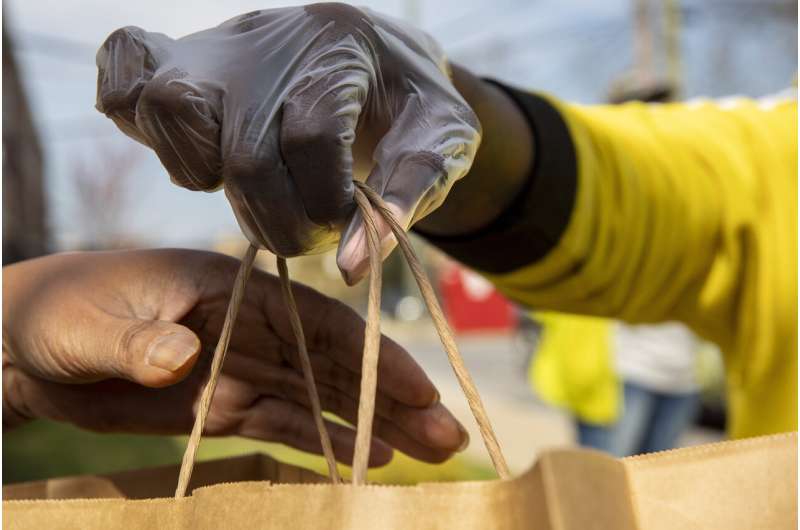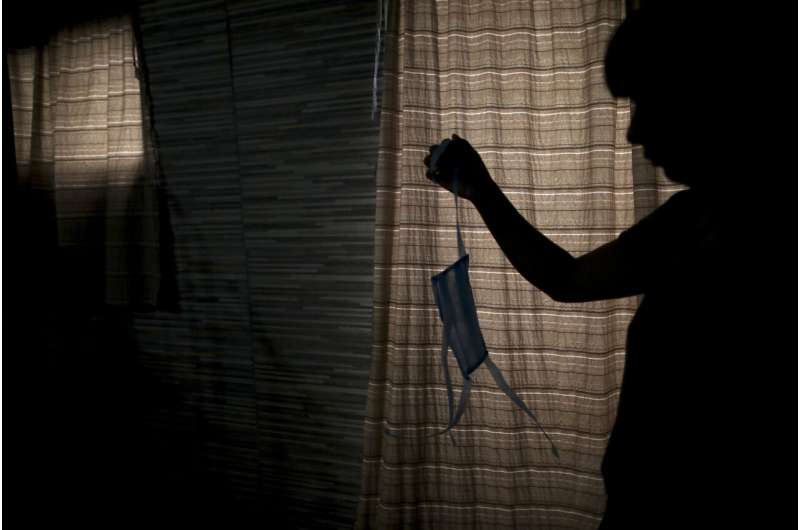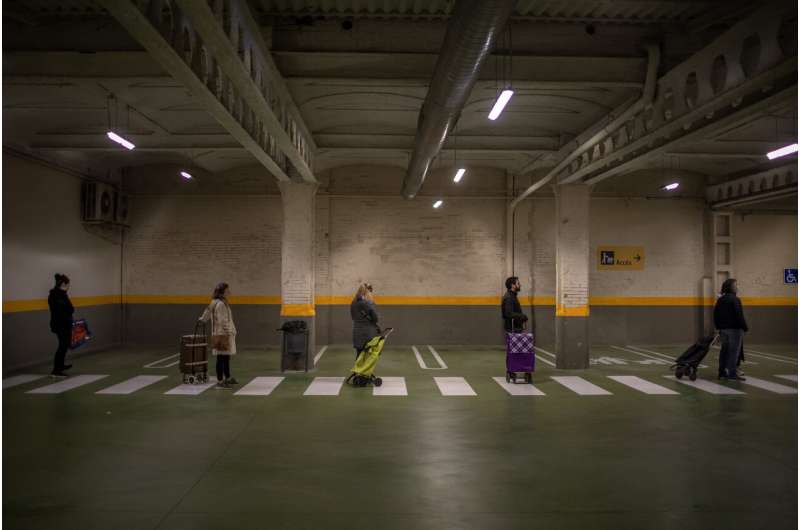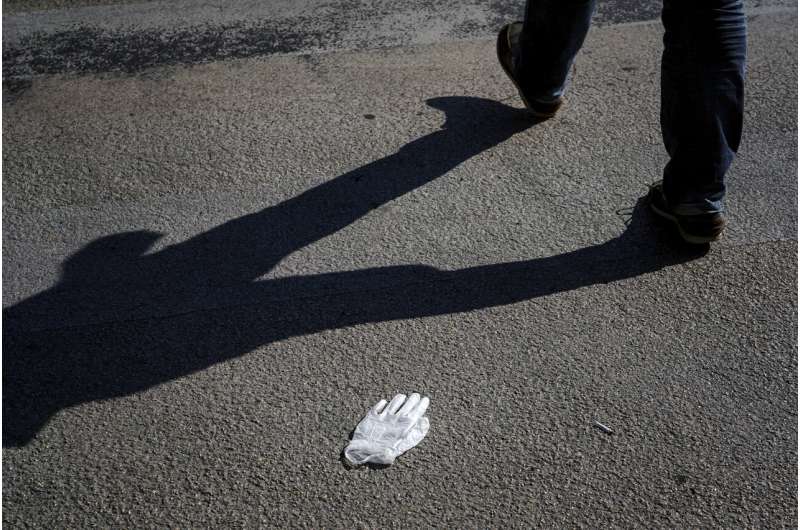Virus-era decisions: Way too many, and each with high stakes

Should you wash your hands?
Are you going out to get the mail? Should you touch the mailbox? Should you touch the mail? Should you clean the mail?
Should you take a walk? Should you wear a mask? What about gloves? What about neighbors—stay six feet away? Ten? Will they approach? What will you do? Will you be standoffish, or laugh it off?
Should you go to the supermarket? Should you wipe down the groceries? What if you run out of wipes?
Should you stop to get gas? Should you wear gloves at the pump? Should you douse your credit card in sanitizer after sticking it in the slot? Should you remove the gloves before you handle your steering wheel? Should you throw the gloves on the car floor or use the gas station trash can?
Can you wear your mask twice? Should you sew your own? Let someone in your family wear your mask?
Are you overreacting? Are you under-reacting?
Should you wash your hands again?
What kind of soap?
___
"We are living, and in some cases, dying by snap judgments."—Michael R. LeGault, " Think: Why Crucial Decisions Can't be Made in the Blink of an Eye" (2006)

___
The notion of decision fatigue has been around for a long time—long before the virus came.
But for many of us, it was the fatigue of a consumer society. If you struggled financially, it meant making rolling decisions about which groceries were affordable and which stayed on the shelf. For others, it was selecting channels and streaming services and apps. Choosing tech. Swiping Tinder. Navigating, say, the average New Jersey diner menu, which hovers around at 150 items.
Yes, if you bought the MacBook Air instead of the MacBook Pro, you'd have portability but a smaller screen and weaker processor. Yes, buying the Oikos Greek Blueberry Blended Yogurt might make your mouth happier than the regular Dannon with the fruit on the bottom. First-world problems, mostly.
The thing about those tiny decisions, though, was that we didn't HAVE to make many of them. And if we screwed up, the stakes were often low.
Now, though, the problems around tiny decisions are not first-world but worldwide. The most fleeting of daily choices—no matter where you are—have taken on the most monumental of potential consequences.
Kat Boogaard, a Wisconsin freelancer who has written about decision fatigue, grapples with this. On one hand, like many of us, some of her decisions are now pre-made—there's little debate about whether to stay home or eat out. But that's offset by the fraughtness of other once-routine decisions.
"I never thought I'd agonize over the perfect time to grab groceries or whether I should visit my OBGYN," says Boogaard, who is 35 weeks pregnant. "It increases my anxiety, hinders my focus and has had a negative impact on my productivity."
For many right now, duress is a daily companion that wears countless coats. And as social scientists will tell you, an agitated state is not the best moment to decide things—particularly momentous ones. "We seem to do our best thinking when we're feeling good," psychologist Barry Schwartz wrote in his 2004 book, " The Paradox of Choice."

"What we're up against in this kind of situation is our long-ingrained habits," says Carrie Bulger, a psychology professor at Quinnipiac University in Connecticut who studies decision fatigue.
Picture this, she says: You decide to go to the grocery store. You see strawberries. Are they bruised? Normally you'd pick them up and check for freshness. Not now. So you move through the supermarket landscape hyperaware of decisions—from social distancing to choosing a cut of meat—and walk out to the parking lot exhausted.
"We're up against decisions that never even crossed our minds before," Bulger says. "You wonder what norms and rules you might have violated along the way from aisle one to aisle 14."
___
"The task of making sense of ourselves and our behavior requires that we acknowledge there can be as much value in the blink of an eye as in months of rational analysis."—Malcolm Gladwell, " Blink " (2005)
___
There's another problem. There always is.
This one is that we're often making these little decisions—weighty decisions—without ever knowing how they turn out.
Did we infect someone with coronavirus by delivering their takeout order? Did we catch it by walking through air that someone with a cough just vacated? Probably not. But hey—maybe.

Asia Wong, a social worker and life coach who oversees student health services at Loyola University New Orleans, says the sheer strangeness of the decision-making process throughout the past month has been an aggravating factor in many lives.
Not only do tiny decisions matter more, but they must be repeated—contemplated again and again—and they are changing daily. Just the notion of whether to wear a mask has evolved—a choice laden not only with self-preservation but even morality.
"In the past, you could say, `I'm a good person, I donate to charity, I am nice to the persons around me, I don't kick dogs,'" Wong says. "Now people have to ask themselves: Does it make me a bad person if I go to the store to buy a bag of chips? That's very heavy, and in many ways it's new to the American consciousness."
In NBC's philosophical comedy " The Good Place," a moment comes when the main characters come to a realization: Being "good" has become impossible because life has grown so intricate that even good decisions can, somewhere downstream, cause something bad.
Perhaps even more relevant right now would be this scenario, unfathomable to Americans four weeks ago: a world where miniature decisions have multiplied and increased in gravity to the point where a paralysis of choice might seem—to many—a reasonable alternative.
Maybe it's useful that so many of us are locked down right now. Lots of time to think about this. And wash our hands again. And contemplate the right soap.
© 2020 The Associated Press. All rights reserved. This material may not be published, broadcast, rewritten or redistributed without permission.





















